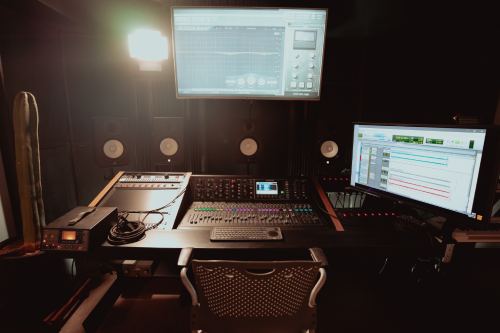The first-ever recording studio opened in New York in 1889. Initially, recording studios seemed like a novelty, but they quickly gained popularity. One hundred thirty-two years is a long time for a concept to hold interest, which is just what recording studios have done and continue to do.
Although technology is allowing for home recording to become easier than ever, recording studios are not in danger of dying. Recording studios still provide a place to record with rooms acoustically treated and specifically designed for optimal sound. Additionally, studios have equipment, staff to help, and are a place to collaborate in.
In this article, you will learn why recording studios are not in danger of dying out as the times change.

Dying Recording Studios
It may seem that recording studios are beginning to die out, but nothing is further from the truth. You must know that some recording studios have closed, but it is not because they no longer have a place in music culture.
Why Are Some Studios Closing?
It is no great secret that several recording studios have closed, but this is not because the business is dying. Just like any business that closes, there are likely many factors in the decision.
The most common reasons studios have closed are:
Equipment
Recording studios need to be willing to update their equipment to keep up with the changing wave of technology. Unfortunately, recording equipment is not cheap to purchase.
Because of this, many small recording studios are unable to afford the price of upgrades. Without upgraded equipment, it is challenging to draw customers to your business.
Adaptability
Times have changed since recording studios made their first appearance. Because of this, studios need to be willing to make adaptations to meet the needs of clients.
Studio Adaptations
Studios are scrambling to keep the attention of potential clients so they have been focusing on adaptability. Some adaptations studios have put into place to stay in the recording game are:
- Remote recording options
- Special classes
- Release parties in the studio
Other adaptations are popular, but these are some of the most popular options among studios.
Are Recording Studios Obsolete?
Recording studios are far from obsolete. As long as musicians and artists need to record music, there will be a need for studios. There is a misconception that studios are going to become obsolete because of more advanced recording options.
Many at-home recording options are available, but they do not produce the same quality as a recording studio. Because of this, the need for high-quality recording studios will always be present.
What Do Recording Studios Offer?
You may be wondering what recording studios can offer that cannot be achieved with high-quality recording equipment at home. Let’s look at what is in a recording studio that may not be in a home.
- Acoustics: High-quality recording studios are built by audio engineers and trained acoustic engineers. Because of this, the sound quality is crisp and clear without the risk of echoing.
- Professionals: High-quality recording studios are staffed with trained music professionals skilled in the art of music production. They know what sounds to mix as well as which microphone positions will enhance your music.
- Equipment: Recording studios have high-quality recording equipment, which will ensure your music sounds the best that it possibly can.
- Input and Feedback: Because studios have a large group of professionals on staff, your music will be critiqued and adjusted for the best possible results.
As you can see, recording studios offer vast opportunities to artists that likely cannot be achieved in a simple at-home environment. Because studios are controlled environments, there are not likely to be external factors that can unexpectedly impact your final product.
What Are The Problems With Home Recording?
Many people have at-home recording studios that seem to work just fine without the added cost of a professional studio, so you may be wondering what the problem is. If you are planning to record at home, you need to be aware of the following issues.
- External Sound: It is challenging to make at-home studios soundproof. At home, studios are typically located in the main home, garage, or basement, where there is always activity taking place. Without the proper soundproofing, it will likely impact the quality of the recording.
- Equipment: High-quality equipment is expensive, which means most at-home studios have lower quality and more cost-effective equipment. The quality of the equipment used impacts the quality of the product.
- No Expert Support: If you choose to record in an at-home studio, you give up the opportunity for expert feedback and adjustments. While this is cost-saving, it will likely impact the final product.
Final Thoughts
Recording studios are not going away anytime soon. There is always going to be a need for high-quality recording options for current and up-and-coming artists. A professional recording studio is expensive, but the final product is worth the price tag.
